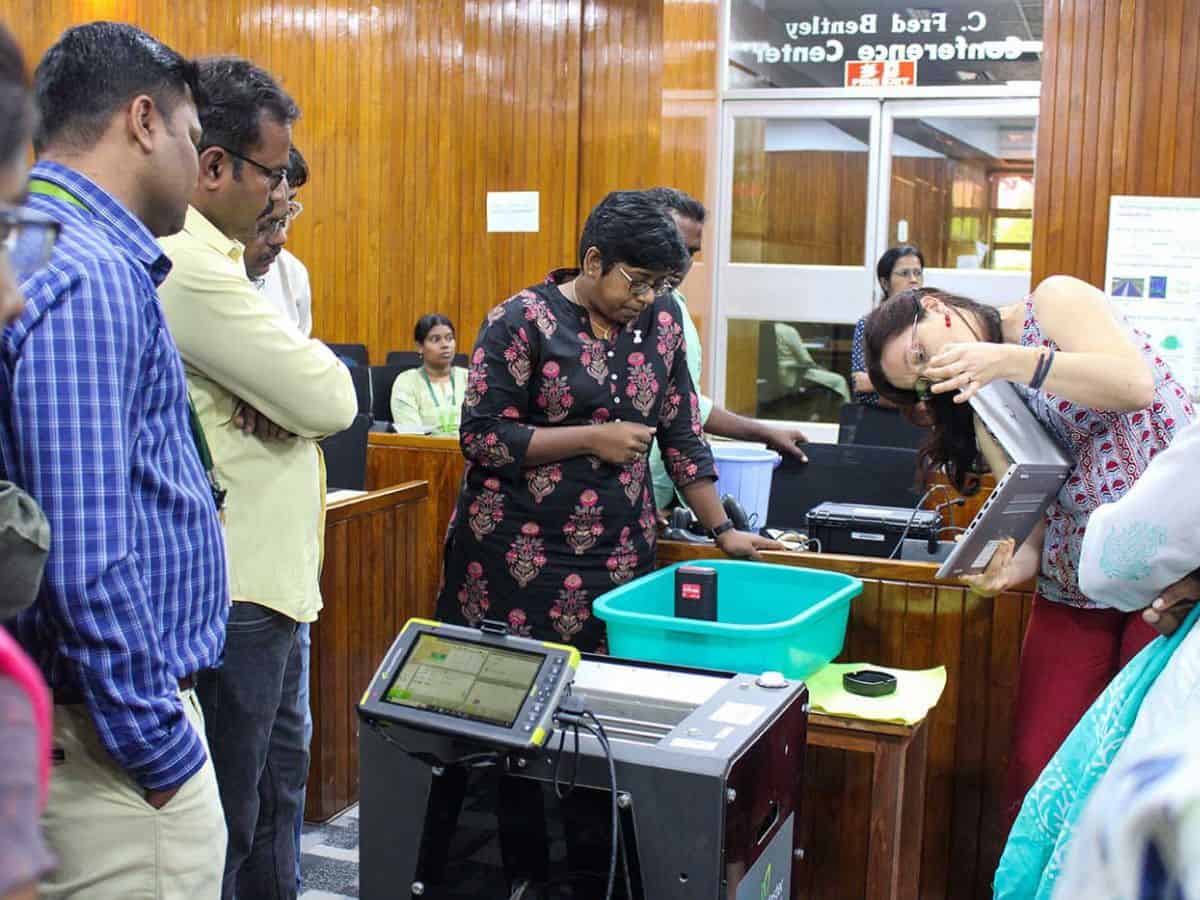
Hyderabad: Researchers at the International Crops Research Institute for the Semi-Arid Tropics (ICRISAT) are introducing a transformative technology for crop testing, combining AI-driven models and pocket-size near-infrared spectroscopy (NIRS) devices. These portable sensors allow for quick evaluation of nutrition levels in the indigenous food grains right at the farmer’s gate or in research fields.
Dr Jacqueline d’Arros Hughes, Director general of ICRISAT, foresees the tool as a catalyst for the production of nutrient-dense crops, both in breeding programs and in farmers’ fields, and as a crucial element in the global fight against malnutrition.
“This technology is poised to expedite the breeding of nutrient-dense crops while facilitating their integration into the value chain. Our goal with this intervention is to provide quality assurance for the distribution of nutritionally fortified crops so that they reach those who need them most,” remarked Dr Hughes.
Traditionally, assessing the nutritional quality of grains and feedstock could take several weeks, involving manual or partially automated processes and laboratory instruments. In contrast, mobile NIRS devices are being claimed to be more cost-effective, as they can assess over 150 samples per day, per person.
These non-destructive and robust grain quality measuring devices provide timely information on grain composition and can be used to promote quality-based payments in the market—benefiting food producers, grain processing industries, and farmers alike.
“We see the adoption of portable technology for assessing grain quality as an important step in decentralizing and democratizing market systems, essential to promote the consumption of nutri-cereals. This transition can facilitate quality-driven payments for farmers, while providing quality assurance to health-conscious households moving forward,” noted Dr Sean Mayes, Global research director of the accelerated crop improvement program at ICRISAT.
